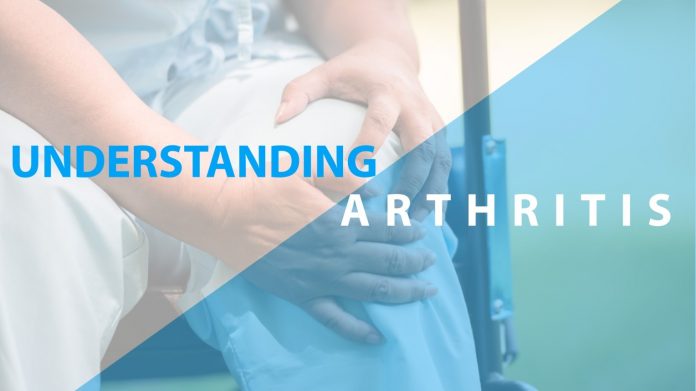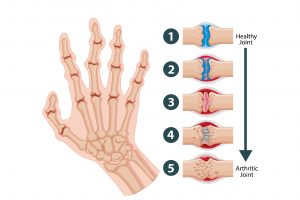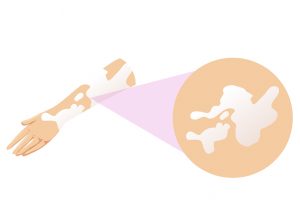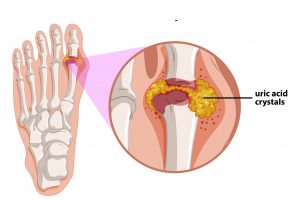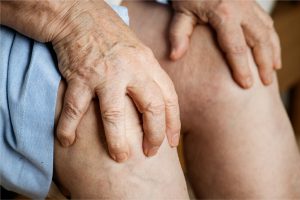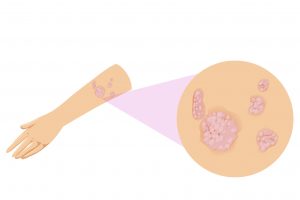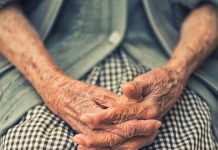We all heard the word arthritis but only few things we know about this. It is a common condition that affects people of all ages, races and genders in different ways. However, majority of the people who can have this are elders. It is the most common cause of disability among them. If one morning our parents or grandparents wake up and feel the sore, stiff back or aching knee, they might be experiencing the symptoms of this disease.
Arthritis is an umbrella term to describe the inflammation of the joints that causes pain, swelling and stiffness in the muscles, joints, tendons, bones, ligaments and also connective tissues. Its causes still unknown but usually family history, obesity, neurogenic and metabolic disturbances, trauma as well as infection can be the contributing factors for this.
As we are all aware, joints enable the bones to meet and move in certain direction. Through the help of ligaments and tendons—both are fibrous connective tissue, the bones are connected, kept in place and the bone and muscles are joined together. In order for the joint to work smoothly, the cartilage covers the surface of the bones stopping the bones to rub against each other. On the other hand, synovial membrane produces synovial fluid that can be found in the capsule located around the joint. This fluid lubricates and provide nutrients to the joint and cartilage. So when the joint lining thickens, it can lead to inflammation of the joint.
In understanding arthritis, it is better to comprehend ourselves to its different types. There are over 100 kinds of arthritis which can affect our loved ones during their senior years. Discussed below are some of the most common types of arthritis.
Rheumatoid Arthritis
It is an inflammatory disease that causes pain and swelling of the joints and tendons as well as can affect other organs. In some cases, inflammation helps fight against infections to heal the body. But when the seniors have this, their own healthy tissues are attacked by their immune system targeting the lining of the joints that causes joint inflammation and damage. Joints in the hands and feet are usually affected by this as well as the hips and knees.
Lupus
It is an autoimmune disease wherein the body’s immune system fails to function properly and attacks healthy tissue. It is difficult to be detected because the symptoms can be hidden by other illnesses. However, most of the common problems that a person who has this may experience are: swelling, inflammation, damage to the joints, kidneys, skin, blood, lungs and heart.
Gout
Gout is an inflammatory condition wherein small crystals build up in and around the joint that cause severe pain and swelling. It is among those few types of arthritis which can be treated. But, when it is not treated, it can permanently damage the joint. The blood has some uric acid but in order for this not to affect the body, the kidneys should flush some of it quickly enough by urinating to keep down the right level in the blood. However, when there’s too much uric acid in the tissues, those crystals can be formed that can enter the joint space. Usually, joints at the base of the big toe are attacked by this but it can also affect ankles, hands, knees, elbows or wrists.
Osteoarthritis
This type of arthritis is a condition can be developed and acquired gradually as years pass that greatly affects different joints including bones, cartilage, ligaments and muscles. Usually, more females are likely to have this than men because of hormonal changes that happen to women. The usual causes of this ailment includes: damage to joint cartilage because it becomes brittle, rough and pitted; inflammation of the tissue around the joint, bones under cartilage are broaden out and thickens; and deterioration of ligaments and tendons. It affects mostly the joints of the hands, knees, big toe, spine and hips.
Ankylosing spondylitis
Ankylosing spondylitis is a form of inflammatory arthritis that affects the spine. Neck, lower back, and pelvis are usually inflamed when someone has this. Some of its early symptoms include: constant pain and stiffness in the low back, buttocks and hips; bony fusion that may impair the person’s ability which affects his/her routine activities; pain in ligaments and tendons which are connected to bones. Its main cause is still undiscovered but some of the contributing factors for this are: strong genetic or family link.
Fibromyalgia
Fibromyalgia is a condition that causes pain, aching and stiffness in muscles, tendons and ligaments in the body which mostly affect women than men. People with this condition are extremely sensitive to physical pressure and severe pain. Although, no one can tell and fully understand its cause, many believed, however, that it can be associated to the way the pain is processed in the central nervous system. Sleep disturbance and extreme tiredness can be the symptoms of this disease. Although, it is not due to joint inflammation, older people who have this may also experience pain and stiffness in the muscles.
Polymyalgia rheumatica
It is an inflammatory condition that typically affects the muscles in the upper arms, shoulders, thighs and buttocks. Usually, people, especially women, aged over 50 are affected by this. It develops over a couple of weeks. Sometimes, this can be linked with giant cell arteritis—a disorder wherein arteries for the head and neck are inflamed which can cause severe headaches as well as extreme pain around jaw and temple. When polymyalgia rheumatica gets worsen, it may restrict the seniors to mobilize usually during early in the morning.
Psoriatic arthritis
Psoriatic arthritis is a type of arthritis that normally affect those older people who have psoriasis—a skin condition that causes the cells to build up rapidly on the surface of the skin and features red patches with silvery scales. Just like other type of arthritis, its main cause is the inflammation in and around the joints. When seniors have this, they may experience problems in fingers and toes as well as discoloration of their nails. Most likely, a stiff and painful neck or back called spondylitis may surface due to inflammation in the spine.
Final Thought
It is difficult to live and cope with arthritis since it may affects the person’s day-to-day activities. Though, most of the forms of arthritis are incurable, it is recommended to consult the doctor first before taking pain killer medication. Hospital consultants, rheumatology nurses and therapists may aid the senior to relieve the pain they are suffering from, reduce the symptoms of inflammation. In treating this condition, flexibility exercise is suggested for the seniors in order to help their joints move freely.
















